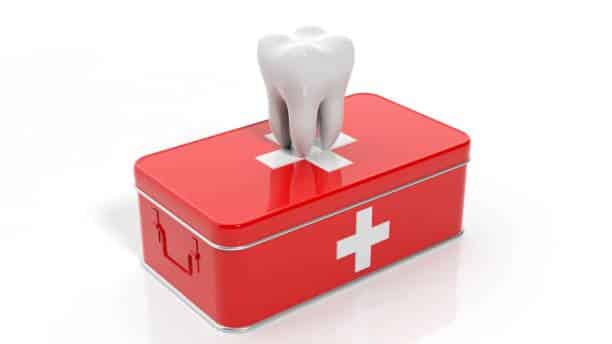
Jacksonville Emergency Dentist
Dental injuries resulting in trauma can occur at the most unexpected moments. Traumatic dental injuries (TDIs) can be caused by sports related injuries, car accidents, or even falling and landing face first. As with any dental treatment, our goal is to save the affected teeth; specifically, saving the pulpal vitality, or maintaining the nerves necessary to keep the teeth“alive.” While treatment options may vary among cases, teeth are better saved if they receive immediate and proper care after an injury.
Types of Dental Injuries
A common injury is a chip or fracture, which results in the removal of tooth layers such as enamel and dentin. Some chips are so large that the pulp tissue may become exposed. A patient will be able to determine this if they feel any sensitivity or discomfort (for example, to cold or hot liquids). Daily overuse of your tooth, by chewing hard objects such as candies or pencils, can also cause fractures.
In severe cases, a tooth may be slightly displaced or fully knocked out. If tooth displacement occurs, the tooth has either been pushed into/out of the jaw or has undergone some type of rotation and now is misaligned. If a permanent tooth has been knocked out and the injury has occured within hours, it is possible to reimplant it back into its socket.
Beside impact directly affecting tooth structure, dental injuries can also damage gums, the tongue, or other areas within the mouth. These types of injuries are known as soft-tissue injuries and commonly cause throbbing pain to or bleeding from the affected area.
What can be done?
Depending on the severity of the chip, a dentist may be able to
restore the tooth with the same composite material used for fillings. If a
deeper fracture has occurred, the tooth may saved and protected with the
placement of a crown, otherwise, extraction of the tooth followed by an
implant may be the preferred treatment method.
If a tooth has been displaced, the dentist may be able to splint
or realign the tooth back into its usual position. This tooth should
periodically be evaluated to ensure the trauma did not affect the nerve. A
tooth that has been knocked out of its socket must first be cleaned, avoiding
the root portion, and placed back into the socket if possible. Pressure should
be placed to this area to hold the tooth in place and assist in the stop of
bleeding.
TDI first aid facts:
- Rinse debris/dirt from injured areas with warm water and place a cold compress over your face to reduce swelling
- A warm salt water rinse may help target debris trapped between teeth or in the gums
- Find and save any pieces of broken tooth you can find
- Never touch the root of a tooth, handle the tooth by its crown side only
- The amount of time a tooth is out of its socket has a direct impact on the success of its reimplantation
Please call us immediately if you experience any dental trauma or pain. The sooner you receive dental care, the more treatment options may be available to you. Call us at 904-348-0416 to schedule your emergency dental visit.
- by admin
- on
